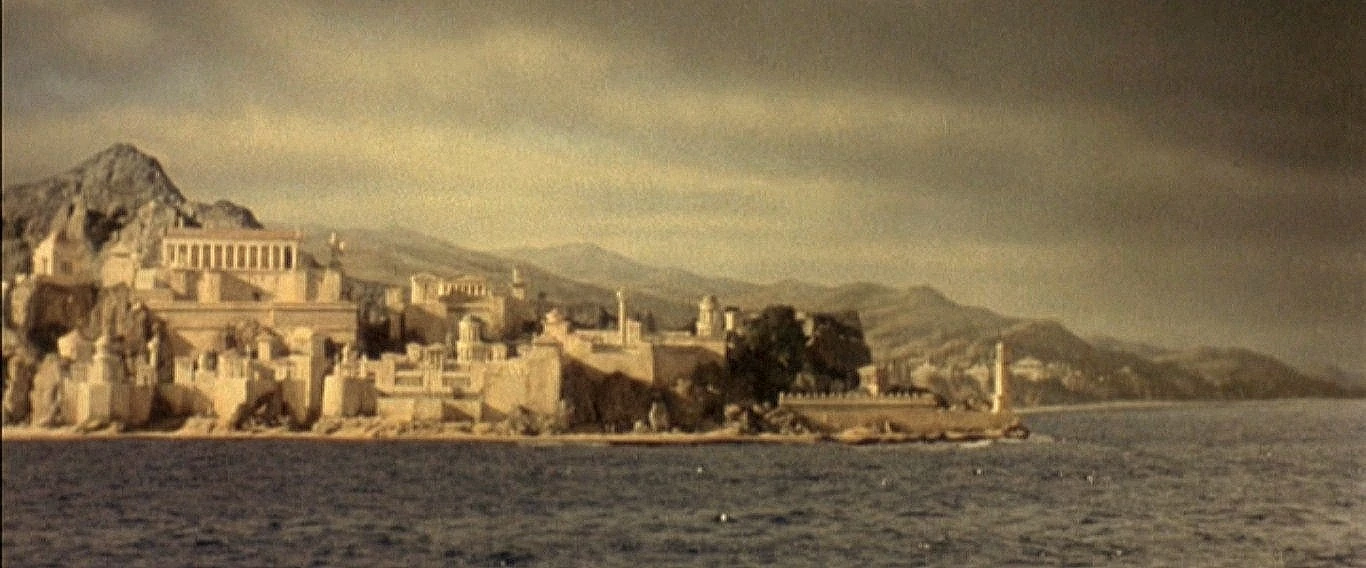Joppa (Jonah 1)
Illustration: Ancient Joppa
Joppa, which means “beautiful”, was located on the Mediterranean coast at Jaffa, just south of modern Tel Aviv. It was the only natural harbour between Acco and Egypt. Timber from Lebanon passed through this seaport on its way to Jerusalem for use in the construction of the temples built by Solomon (2 Chronicles 2:16) and Zerubbabel (Ezra 3:7). The prophet Jonah departed from Joppa in an attempt to flee God’s call to go to Nineveh. The Danites had earlier received this city as part of their tribal allotment (Joshua 19:46) but had moved north to Laish because of their inability to gain control of their allotted territory.
One of the few port cities on the coast of the Holy Land, Joppa was a city that attracted kings from the entire region. It is mentioned frequently in ancient sources, which attest to the wide variety of powers that controlled the city:
- The Egyptian Harris Papyrus describes how the city was taken by Thutmose II (fifteenth century B.C.), who, in a Trojan horse maneuver, sendt the city’s ruler a gift of baskets in which he had hidden his soldiers.
- The city is also mentioned in two of the Amarna Letters (fourteenth century B.C.9, which indicate that Joppa was an Egyptian stronghold during the Eighteenth Dynasty.
- Egyptian dominance evidently continued into the Nineteenth Dynasty; stone doorjambs excavated in Joppa were inscribed with the name and titles of Rameses II (thirteenth century B.C.).
- In light of its location on the northern edge of Philistine territory, a Philistine presence is to be expected after the twelfth century B.C., and indeed Philistine pottery from the eleventh century B.C. has been unearthed there.
- The city was evidently under Israelite jurisdiction during the Solomonic period (2 Chronicles 2:16) and perhaps again under the dynasty of Omri, although available sources do not explicitly claim Israelite control during either of these periods.
- The city was also conquered by the Assyrians. Sennacherib (in his “prism stele”) lists Joppa among the cities he recaptured during his 701 B.C. campaign.
- Joppa remained a prized city during the Persian period. A sarcophagus inscription of Eshmunezer, king of the Phoenician city Sidon, reveals that Joppa, through a donation of the Persian king, was subject to Phoenician authority. Eshmunezer claims that “the Lord of Kings” (the Persian ruler) conferred upon him control of Dor and Joppa, “which are in the plain of Sharon”, as a reward for his faithful service.
- The Phoenicians were not always loyal to Persia, however, and in the fourth century B.C they engaged in a rebellion against Persian rule. Artaxerxes III destroyed Sidon in 358 B.C. and Joppa became lbierated from Phoenician rule.
- Soon afterward, however, Joppa came under the control of a series of Greek rulers. Two coins of Alexander the Great, who entered this region around 332 B.C., have been uncovered there. The city did enjoy a degree of independence under the Ptolemaic Greek rulers of Egypt.
- Joppa was conquered by the Jewish Hasmonean ruler Simon around 144 B.C. This was a matter of great importance to the Jewish state, as it offered an outlet to the sea. The Hasmonean Alexander Jannaeus struck a large quantity of coins stamped with an anchor on the one side to celebrate Jewish control over the city.
- Roman rule began with the conquest of Pompey the Great (64 B.C.). Judea thus lost control of Joppa, but Augustus placed it under the authority of Herod in approximately 30 B.C.
As part of Judea, Joppa was important to the New Testament church. It was in Joppa that the apostle Peter raised Tabitha from the dead (Acts 9:36-43), experienced his vision indicating that God would accept the faith of Gentiles and subsequently preached the gospel to Cornelius (Acts 10).
